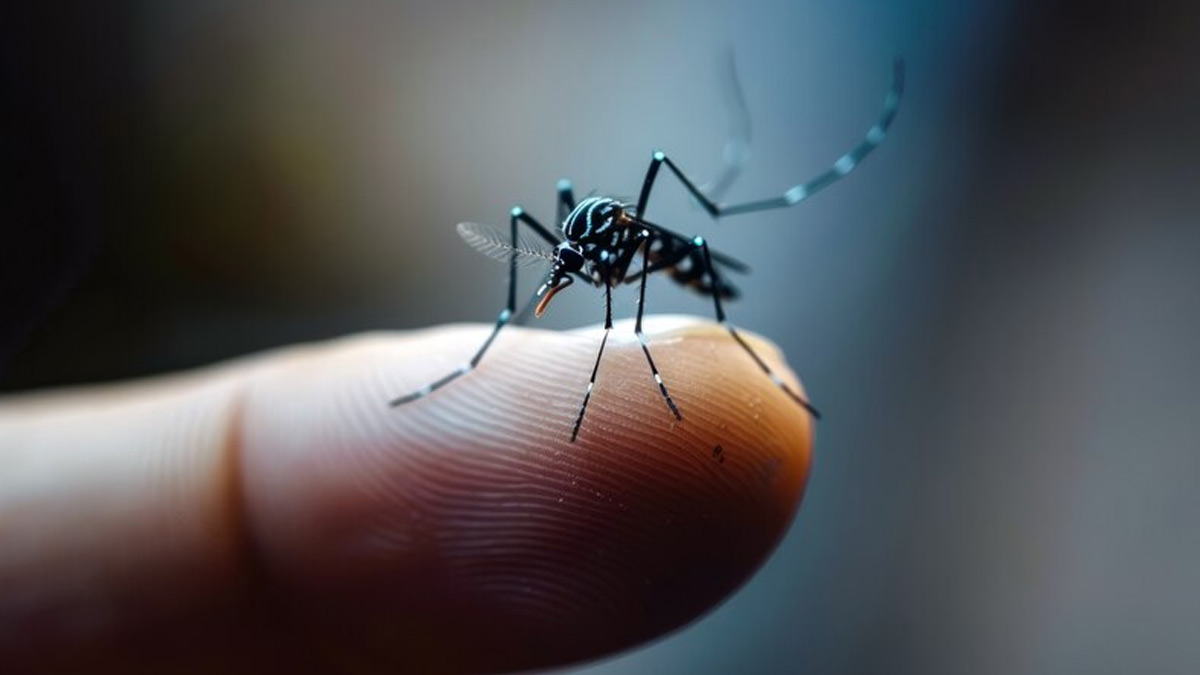
The dengue crisis in India is a significant health concern, particularly due to its severe impact on blood pressure and overall health. Dengue fever, a mosquito-borne viral infection, is notorious for causing high fever, severe headache, and joint pain. However, its impact on blood pressure is often overlooked. As the body battles the virus, fluctuations in blood pressure can lead to serious health complications.
Table of Content:-
To understand the connection between dengue and blood pressure, OnlyMyHealth team interacted with Dr SA Rehman, General Medicine, Noida International Institute of Medical Sciences (NIIMS) College and Hospital, Noida. He emphasises the importance of understanding the effects of dengue on blood pressure and offers crucial advice on managing the condition effectively.
According to a study, dengue patients often experience significant drops in blood pressure, sometimes leading to severe hypotension.
Impact of Dengue on Blood Pressure

"Dengue fever can cause fluctuations in blood pressure, leading to symptoms such as dizziness, lightheadedness, and even fainting," says Dr Rehman. "It's crucial for patients to monitor their blood pressure regularly and seek prompt medical attention if they experience any severe symptoms."
The virus can affect the circulatory system, leading to low blood pressure (hypotension) or, in severe cases, dengue shock syndrome, which is a life-threatening condition. Therefore, understanding how to manage blood pressure during dengue fever is vital for recovery and overall health.
Also read: Dengue Fever's Hidden Danger: Expert Explains Neurological Complications Of Dengue
Managing Dengue and Blood Pressure

Hydration is Key: Staying hydrated is essential for maintaining blood pressure levels and supporting overall recovery. Dr Rehman advises drinking plenty of fluids, such as water, coconut water, and oral rehydration solutions, to prevent dehydration and support the body's immune response.
Adequate Rest: Dengue fever can cause fatigue and weakness, which can affect blood pressure regulation. Ensuring adequate rest helps the body recover and manage the symptoms more effectively.
Balanced Diet: A diet rich in vitamins, minerals, and antioxidants can aid in recovery and support immune function. Dr Rehman recommends incorporating nutrient-dense foods, including fruits, vegetables, whole grains, and lean proteins, to support overall health.
Medical Attention: If dengue significantly impacts blood pressure or causes symptoms like dizziness or fainting, seeking prompt medical attention is crucial. Healthcare professionals can provide appropriate treatment and monitoring to manage blood pressure issues and prevent complications.
Follow Medical Advice: It is important to follow the advice and treatment recommendations provided by healthcare professionals, including taking prescribed medications as directed and attending follow-up appointments. These measures are vital to effectively managing dengue fever and mitigating its effects on blood pressure.
Also read: Doctor Warns Of Increasing Dengue Cases Among Children, Shares Preventive Measures
Preventive Measures
Preventing dengue fever is crucial in managing its complications. Dr Rehman emphasises the following preventive measures:
Use Mosquito Repellents: Applying mosquito repellents on exposed skin and clothing can reduce the risk of mosquito bites.
Wear Protective Clothing: Wearing long-sleeved shirts, long pants, and socks can help protect against mosquito bites.
Eliminate Breeding Sites: Remove standing water in and around your home to eliminate mosquito breeding sites. This includes emptying containers, cleaning gutters, and ensuring proper disposal of waste.
Conclusion
Dengue fever is a serious illness with potential complications, including significant impacts on blood pressure. Managing the condition requires a comprehensive approach, including hydration, adequate rest, a balanced diet, and medical supervision. Preventive measures are equally important in reducing the spread of dengue and its associated health risks. Dr Rehman concludes, "Dengue fever can be managed effectively with prompt medical attention, proper care, and preventive measures. Understanding its impact on blood pressure and taking appropriate steps can significantly improve patient outcomes."
Also watch this video
How we keep this article up to date:
We work with experts and keep a close eye on the latest in health and wellness. Whenever there is a new research or helpful information, we update our articles with accurate and useful advice.
Current Version
